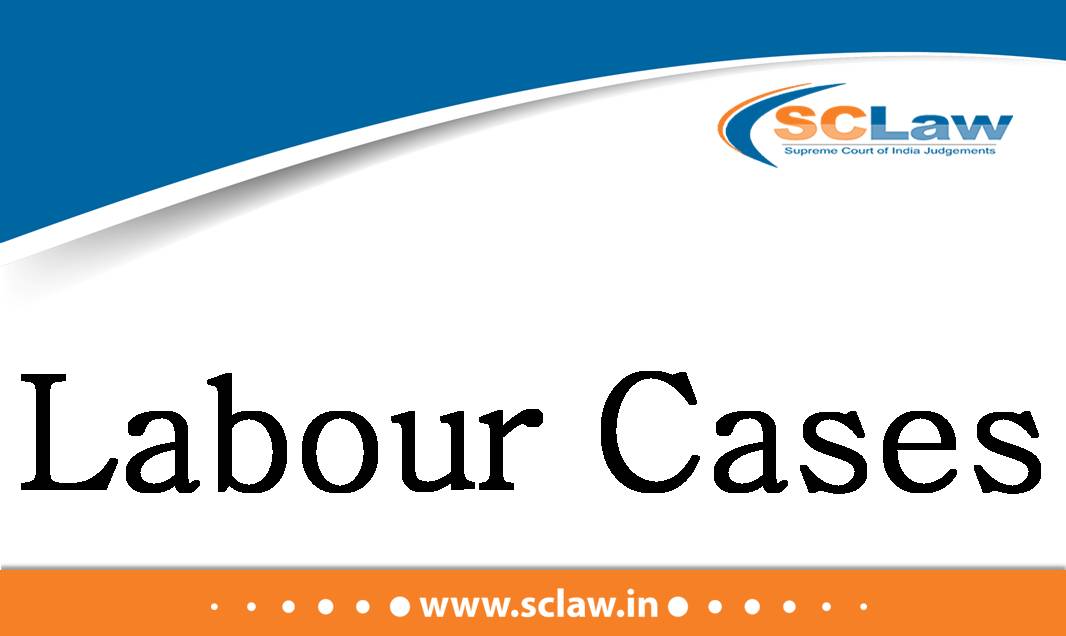Remand of Case— When the first appellate court Itself did not decide the appeal on merits and considered it proper to remand the case to the Trial Court, a fortiori, the High Court had no jurisdiction to decide the appeal –on merits.
(2017) 176 AIC 214 : (2017) AIR(SCW) 2402 : (2017) AIR(SC) 2402 : (2017) AllSCR 1270 : (2017) 123 ALR 817 : (2017) 4 AndhLD 180 : (2017) 2 ApexCourtJudgments(SC)…
Cabinet approves amendment to law on cheque bounce cases An amendment to the Negotiable Instruments Act will allow a court to order for payment of an interim compensation to those whose cheques have bounced
The amendment is likely to be introduced in the ongoing winter session of parliament. Photo: iStockphoto New Delhi: The cabinet on Friday approved an amendment to a current law to…
Adverse Possession–Unless the person possessing the land has a requisite animus, the period of prescription does not commence. Adverse Possession–Mere long possession for a period of more than 12 years without anything more do not ripen into a title.
2008(1) LAW HERALD (SC) 442 IN THE SUPREME COURT OF INDIA Before The Hon’ble Mr. Justice S.B. Sinha The Hon’ble Mr. Justice Harjit Singh Bedi Civil Appeal No. 4880 of…
Regularization–Creation of Post–Court cannot direct the creation of posts and it is beyond its jurisdiction.
2008(1) LAW HERALD (SC) 432 IN THE SUPREME COURT OF INDIA Before The Hon’ble Mr. Justice A. K. Mathur The Hon’ble Mr. Justice Markandey Katju Appeal (civil) 5732 of 2007…
Eviction–Notice–Unless the landlord has given to tenant one month’s notice expiring with a month of tenancy, he cannot any of provisions either under Tenancy Act or under TP Act.
2008(1) Law Herald (SC) 427 IN THE SUPREME COURT OF INDIA Before The Hon’ble Mr. Justice R.V. Raveendran The Hon’ble Mr. Justice P. Sathasivam Civil Appeal No. 7116 of 2004…
-Culpable Homicide–Murder–Sudden Fight–The help of Exception 4 can be invoked if death is caused (a) without premeditation, (b) in a sudden fight; (c) without the offender’s having taken undue advantage or acted in a cruel or unusual manner; and (d) the fight must have been with the person killed–To bring a case within Exception 4 all the ingredients mentioned in it must be found–Penal Code, 1860, Section 300 Exception 4 and Section 304 Part I.
2008(1) LAW HERALD (SC) 423 IN THE SUPREME COURT OF INDIA Before The Hon’ble Mr. Justice Dr. Arijit Pasayat The Hon’ble Mr. Justice Aftab Alam Appeal (crl.) 12 of 2008 …
Promotion–Relaxation in Rules–There should not be any relaxation in rules unless the eligible and qualified candidates are not available–Relaxation should not be exercised to perpetuate mistake. Promotion–Respondent was promoted though he was not eligible and qualified–Held; mistakes are mistakes and can be corrected by following the due process of law.
2008(1) LAW HERALD (SC) 417 IN THE SUPREME COURT OF INDIA Before The Hon’ble Mr. Justice C.K. Thakker The Hon’ble Mr. Justice J.M. Panchal Civil Appeal No. 5865 of 2007…
Respondent themselves have prayed for mense profits @ Rs. 900/- pm and while granting SLP Supreme Court has directed to deposit Rs. 900/- pm and fact that son of the appellant has inducted a tenant in a premises, adjacent to tenanted premises @ Rs. 20,000/- pm–Interim order of depositing Rs. 20,000/- pm charges to Rs. 5,000/- pm.
2008(1) LAW HERALD (SC) 416 IN THE SUPREME COURT OF INDIA Before The Hon’ble Mr. Justice Tarun Chatterjee The Hon’ble Mr. Justice Dalveer Bhandari Appeal (civil) 56 of 2008 Sharma…
Termination–Reinstatement–Merely because an employee has completed 240 days of work in a year preceding to date of retrenchment, the same would not mean that his services were liable to be regularized.
2008(1) LAW HERALD (SC) 413 IN THE SUPREME COURT OF INDIA Before The Hon’ble Mr. Justice S.B. Sinha The Hon’ble Mr. Justice G.S. Singhvi Appeal (civil) 5875 of 2007 Mahboob…
Arbitration Law–Interest on award–Little confession in direction of arbitrator–It is presumed that arbitrator has granted simple interest @ 10% p.a. from date of decree till payment in full
2008(1) LAW HERALD (SC) 412 IN THE SUPREME COURT OF INDIA Before The Hon’ble Mr. Justice G.P. Mathur The Hon’ble Mr. Justice P. Sathasivam Appeal (civil) 12 of 2008 Ghulam…
















